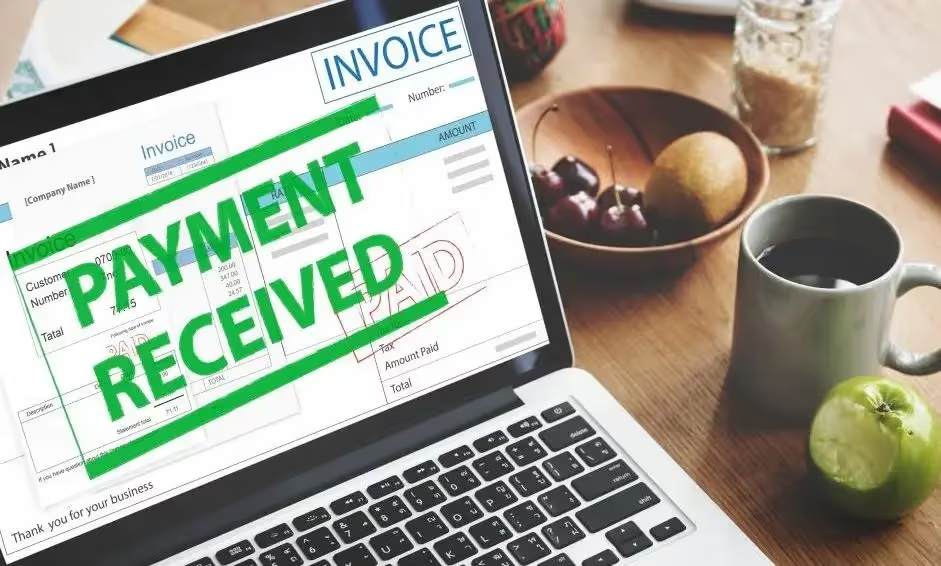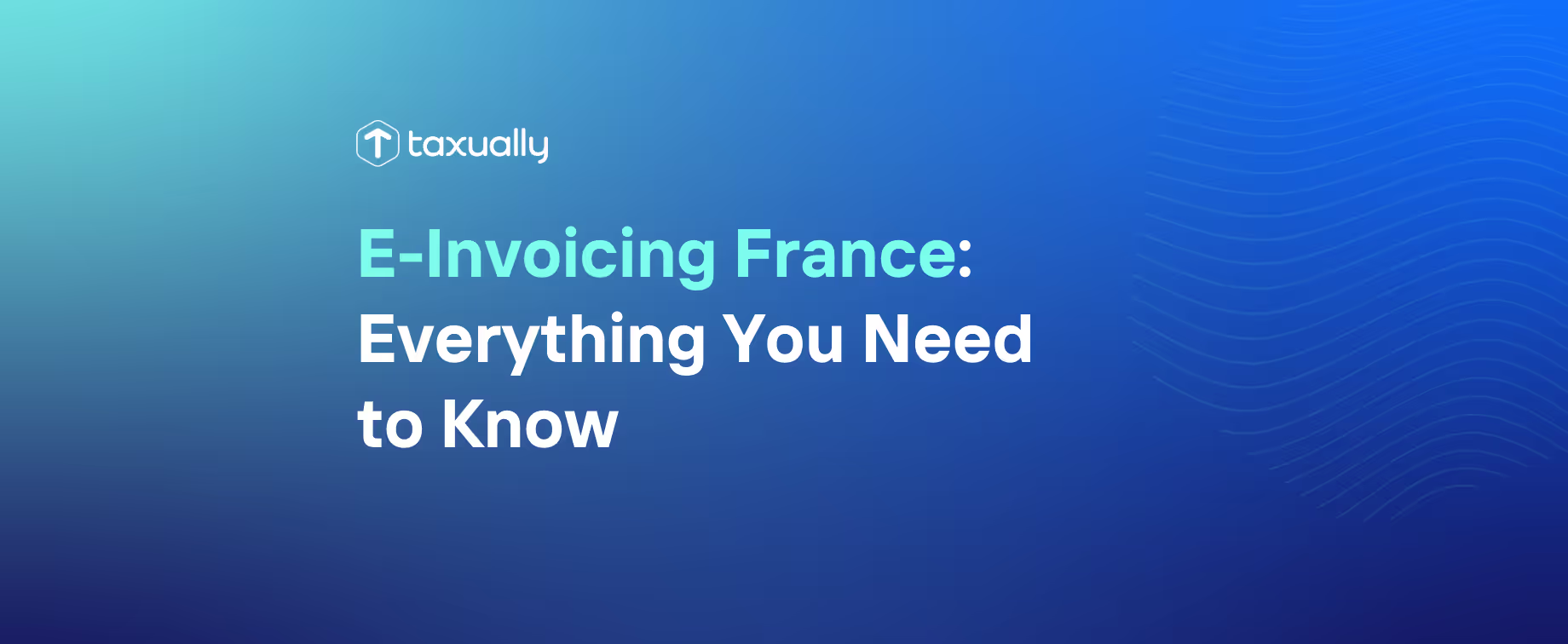Key takeaways
- Mandatory e-invoicing rollout begins in 2026: Large companies must comply by September 2026, with staggered deadlines for medium-sized companies and SMEs.
- Structured formats only: Invoices must be issued and received in a structured electronic format, such as Factur-X or XML—PDF invoices will no longer be compliant.
- Centralized government platform: Invoices and transaction data will be transmitted through the public invoicing portal or via certified service providers.
France is undergoing a sweeping reform of its invoicing system as it moves towards mandatory electronic invoicing and e-reporting for all domestic B2B transactions. This transformation, led by the French tax authorities, aims to modernize VAT reporting obligations, reduce VAT fraud, and ease the administrative burden for businesses. Whether you're a multinational or a French SME, understanding how e-invoicing in France works—and what you need to do to prepare—is essential.
This guide will walk you through the French e-invoicing mandate, explain how to issue and receive electronic invoices, and outline the steps businesses must take to comply with the new e-invoicing and e-reporting obligations.

Why France is mandating e-invoicing
The French government passed legislation mandating the use of electronic invoicing for domestic B2B transactions and e-reporting for certain cross-border and B2C operations. This reform aligns with the EU’s VAT in the Digital Age (ViDA) initiative and supports goals such as:
- Enhancing VAT collection and minimizing fraud
- Simplifying invoice management and reducing paper trails
- Increasing the availability and accuracy of invoice data and payment data
- Lowering operational costs via automation and streamlined invoice processing
What is e-Invoicing in France?
Under the French e-invoicing model, an e-invoice is not just a digital document—it must meet strict requirements to ensure that it can be automatically processed by accounting systems. A valid e-invoice must:
- Be issued and received in a structured electronic format (not a PDF or Word doc)
- Include required transaction data, such as VAT amounts, buyer and seller IDs, and payment terms
- Pass through a partner dematerialization platform (PDP) or the public invoicing platform (PPF)
Formats like Factur-X (a hybrid PDF/XML format) and fully structured XML are currently accepted.
Implementation timeline for French e-invoicing mandate
The rollout of mandatory e-invoicing and e-reporting in France will follow a phased approach:
- Pilot phase: Began in early 2025 (instead of July 2024), with volunteer companies and software providers testing the system.
- September 1, 2026 (with an option to extend to December 1, 2026):
- All companies must be able to receive e-invoices. This is a crucial point for all businesses operating in France, regardless of their size.
- Large and Medium-sized companies (generally defined by employee count and turnover/balance sheet, though specific thresholds exist) must issue structured electronic invoices and comply with e-reporting obligations.
- September 1, 2027 (with an option to extend to December 1, 2027):
- Small and Micro-enterprises must comply with both issuing structured electronic invoices and e-reporting obligations.
These rules apply to domestic invoices between businesses established in France. Cross-border and B2C transactions are only subject to e-reporting, not mandatory e-invoicing (at least for now).
How does the e-invoicing platform work?
Invoices will be sent through either:
- The public invoicing platform (PPF) operated by the French tax administration
- A certified partner dematerialization platform (PDP)
- A registered service provider transmitting invoices to the public portal on your behalf
Businesses must send e-invoices, receive e-invoices, and report payment data and cross-border transactions under the e-reporting mandate. This framework allows the exchange of invoices in real-time while automatically sharing critical invoice data with the French tax authorities.

Which invoices are affected?
The French e-invoicing mandate applies to domestic invoices in B2B relationships. Specifically:
- Mandatory electronic invoicing for domestic B2B e-invoicing transactions
- E-reporting obligation for B2C and cross-border sales of goods or services
- Applies to all businesses invoicing in France, regardless of sector
Supported formats and compliance requirements
Businesses must adopt an e-invoicing solution capable of generating, transmitting, and receiving invoices in structured format. Accepted formats include:
- Factur-X: France’s hybrid format (PDF with embedded XML)
- UBL 2.1 and CII (Cross Industry Invoice): Other XML-based formats compliant with EU standards
- EDI (Electronic Data Interchange): Supported if aligned with EU semantic models
Invoices must meet the EU’s EN 16931 standard, ensuring consistency across electronic invoicing systems throughout the European Union.
Benefits of the French e-Invoicing reform
Transitioning to French e-invoicing offers significant advantages:
- Reduced administrative burden and manual tasks
- Faster invoice processing and improved cash flow
- Enhanced data quality and VAT compliance
- Streamlined tax administration for both companies and authorities
- Easier auditability and error reduction
How to prepare your business
To get ready for the upcoming e-invoicing obligation, businesses should:
- Assess your invoicing process: Identify current gaps and system limitations
- Choose a certified platform: Work with a certified service provider or connect to the public invoicing portal
- Ensure your ERP system supports structured formats
- Train staff on electronic invoicing workflows and exception handling
- Engage in the pilot phase if eligible, to get ahead of the implementation curve
Early preparation is essential—especially for medium-sized companies and large companies subject to tighter deadlines.
Conclusion
The French e-invoicing mandate marks a transformative moment for invoicing in France. By embracing a structured electronic format, leveraging the government platform, and ensuring readiness for both e-invoicing and e-reporting, businesses can improve operational efficiency and compliance while positioning themselves for the future of digital taxation.
Don't wait for the deadline—start preparing your e-invoicing France strategy now to avoid last-minute issues.
Do you need help with your VAT compliance? Book a free call with one of our VAT experts to find bespoke solutions for your business, optimize your VAT costs, and reach millions of new potential customers with our automated VAT solutions.
Frequently asked questions
New Year's Day - 1/1/2024Memorial Day - 5/27/20244th of July - 7/4/2024Labor Day - 9/2/2024Thanksgiving Day - 11/28/2024Day after Thanksgiving - 11/29/2024Christmas Eve - 12/24/2024Christmas Day - 12/25/2024
Who is affected by France’s e-invoicing mandate?
All businesses established in France that issue B2B invoices are affected. Large and medium-sized companies must comply starting in 2026, while small and micro-enterprises must comply by 2027.
Are PDF invoices still allowed?
No. Under the new rules, invoices must be issued and received in a structured electronic format like Factur-X, UBL, or CII. PDFs will no longer be compliant.
What’s the difference between e-invoicing and e-reporting?
- E-invoicing applies to domestic B2B transactions: invoices must be issued in structured format and transmitted via approved platforms.
- E-reporting applies to cross-border and B2C transactions: only transaction data needs to be submitted.
What platform do I use to send e-invoices?
You can use either the public invoicing platform (PPF) managed by the French tax authorities or a certified partner dematerialization platform (PDP).
What’s the deadline for complying with the e-invoicing rules?
- September 1, 2026: Large and medium-sized companies must comply
- September 1, 2027: Small and micro-enterprises must comply
All companies must be able to receive e-invoices by September 1, 2026.



















